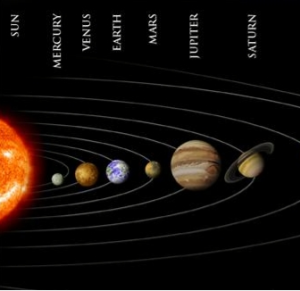Understanding Astrology: Myths And Facts
Understanding Astrology: Myths and Facts
Astrology’s system of symbolism is often under attack by people who enjoy hurling sarcastic remarks whenever this topic arises. They can’t be blamed though, as they usually base their notions on popular culture and misunderstandings. Even many astrologers concede that so-called Sun-sign predictions – “Virgoans will meet someone new and exciting today” – are nonsense.
What Astrology is about
Astrology is based on the seasons and the relationships between the planets (called “aspects”), not on what sign is located behind the sun when you were born. The signs of the Zodiac are merely symbols and metaphors that divide the year into 12 different and equal “seasons.” This partition is based on the proportions of day and night experienced throughout the year. The first Zodiac sign, Aries, always begins on the first day of spring, when day and night are nearly exactly the same length and the amount of light will increase in succeeding days. Astrology postulates that people born in the spring will be the kind of people who spring into action, the same way that nature buds into life after a long winter slumber.
A recent study, published in Nature Neuroscience, backs the link between the season of birth and our personality. According to Professor Douglas McMahon, the study’s author, “Our biological clocks measure the day’s length and change our behaviour according to the seasons.” It is suggested that people born in the winter (e.g., Capricorns) are more at risk to suffer from Seasonal Affective Disorder (SAD), schizophrenia and depression. In Astrology, similarly, Capricorn is associated with suffering, difficulties and pessimism.
Astrology, having existed for more than 3000 years, can consider itself to be the elder sister of psychology. Both disciplines concern themselves with the psyche. Some schools of psychology follow holistic or alternative concepts which display parallels to astrology and combine with it. Among them is Carl Gustav Jung’s Analytical Psychology. The famous Swiss psychiatrist became very interested in astrology and wrote about it in his books.
Sir Isaac Newton, one of the greatest scientists of all time, not only did not scorn astrology but used to practice it himself. When one of his friends asked him why he believed in such “rubbish”, he replied, “Sir, I have studied the matter. You have not!”
Some modern scientists discover exciting things about the different kinds of energy that each planet emits, and are beginning to realise that the Moon really does have a powerful effect upon living things. Among the most interesting Astrology books to read are those written by Michel Gauquelin, who produced some fascinating statistics to prove how accurate astrology can be in assessing people’s personalities and abilities.
Among the most interesting Astrology books to read are those written by Michel Gauquelin, who produced some fascinating statistics to prove how accurate astrology can be in assessing people’s personalities and abilities.
And if all this says nothing to you
There is no scientific proof of the resurrection of Christ, and yet the teaching of Jesus inspires love and compassion to millions of people around the world. To commemorate Muhammad’s nightly flight on a “flying” horse from Mecca to Jerusalem the holiest Islamic temple, the Dome of the Rock, was built. The fact that for so many years, help and healing has been provided by systems that have no fundamental scientific proof, show that at least the power of belief is undeniable.











